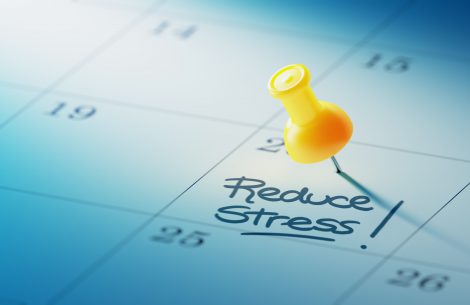Life without stress would be great, right? However, that isn’t the case. Stress is a part of life; it’s unavoidable. While stress is a condition of life, it doesn’t need to rule your life. Knowing the areas of the body where stress stuck can help you mitigate the damage it can create.
What Is Stress
Stress is nothing more than a response to situations that we find difficult. However, the effects of stress from bad memories, trauma, negative emotions, guilt, etc. along with daily worries can accumulate in the body and lead to medical conditions.
Stress is known as the silent killer. It’s considered to increase the risk of every major illness, such as obesity, Alzheimer’s disease, cardiovascular disease, cancer, depression, and obesity. But, there are cues the body gives that its holding stress.
“‘If you are a normal mammal…stress is the 3 minutes of screaming terror on the savanna after which either it’s over with or you’re over with.’ Robert Sapolosky, Ph.D., author of Why Zebras Don’t Get Ulcers.”[1]
Where Stress Lurks in the Body
Here are some areas of the body affected by stress.
Brain – The release of the stress hormone, cortisol, from chronic stress can cause memory loss and depression. Also, tension can cause headaches.
Hair – Researchers at the University of Western Ontario found cortisol in the follicles of men with myocardial infarction. Because hair grows incrementally, hair cortisol levels could be a biomarker for measuring chronic stress. Cortisol is a stress hormone.
Neck and back – Excluding injuries, knots, stiffness, and soreness in the neck and back muscles are usually signs of stress.
Digestive Tract – Stress can affect the digestive tract in several ways: Stomach acid rises from stress resulting in pain, gas, or loose bowels. Also, stress can cause the body to store fat in the abdomen.
DNA –Stress hormones can cause telomeres to shorten which can prevent cells from multiplying if shortened too much. Telomeres protect the ends of chromosomes.
What You Can Do
Symptoms of stress vary from person to person. For example, some people get headaches, and others have stomach issues when stressed. Pinpointing the areas of your body where stress shows up is the first step.
By doing so, you acknowledge that stress is affecting you and then can take remedial action. Also, identifying your stress triggers (situations, people, reactions, etc.) can help you to develop less tension provoking reactions.
Other ways you can mitigate the effects of stress are:
- Meditate
Practicing meditation has been shown in many studies to not only reduce stress but can also help you improve the way you react to people and trying circumstances.
- Yoga
Yoga is a beneficial practice for relieving stress because it concludes stretching, poses that release tension, meditation, breath work, and relaxation.
Yogic breathing can also relieve stress before it takes hold in the body. Breathing from the diaphragm or belly is one of the simplest and most effective yogic breaths. It helps in stressful situations to calm and center yourself. There are many instructional videos on yogic breathing.
- Massage
Masseuses are sometimes better at knowing where you hold stress than you are. They are trained to look for tension in the body and to manipulate the tissue to release knots. A masseuse can also guide you in self-massage techniques that can be used between appointments.
- Warm Baths and Hot Showers
A warm bath with Epsom’s salts to help relieve tense muscles. Magnesium is the main ingredient in Epsom’s salt and is absorbed through the skin. It works by removing lactic acid in the muscles. Epsom’s salts are sold in most grocery stores.
A hot shower is also good at relieving muscle tension from stress, allowing the water to hit those areas of your boy that tense because of stress.
Locating the areas of your body that hold tension and identifying the primary sources of stress along with relaxation techniques and changing mindset can improve overall health by reducing the effects of stress.
References:
- Csatari, Jeff. Where stress hides in your body (June 24, 2011) Retrieved from https://www.today.com/news/where-stress-hides-your-body-wbna43298680.
- Russel, Evan, et al. Hair cortisol as a biological marker of chronic stress: Current status, future directions and unanswered questions. Retrieved from https://www.sciencedirect.com/science/article/pii/S0306453011002794.
- Csatari, Jeff. Where stress hides in your body, June 24, 2011. Web.

